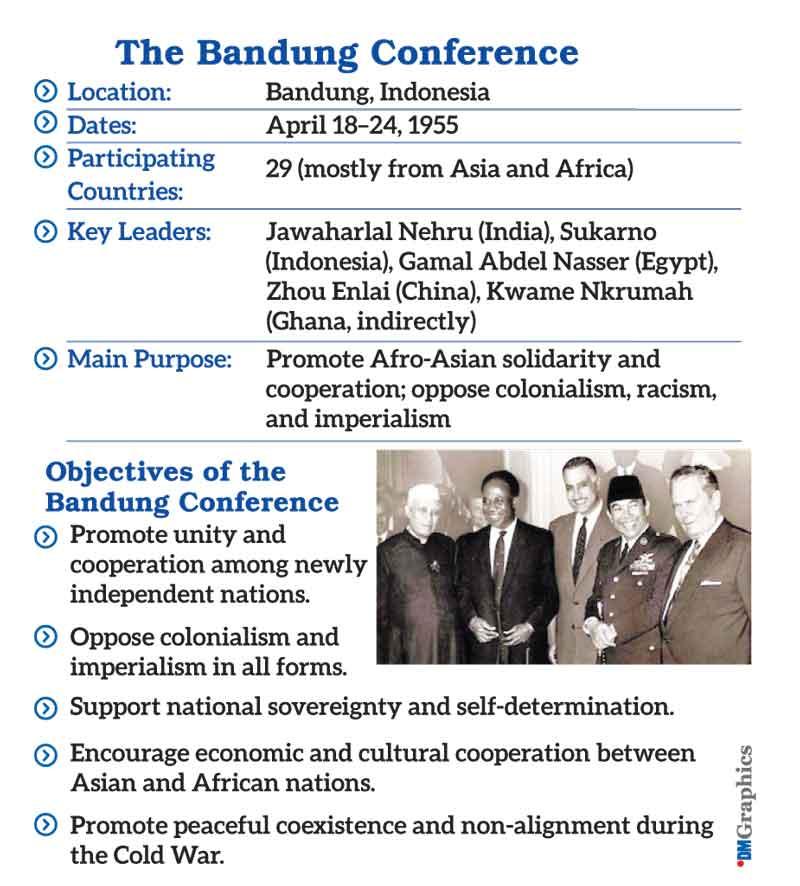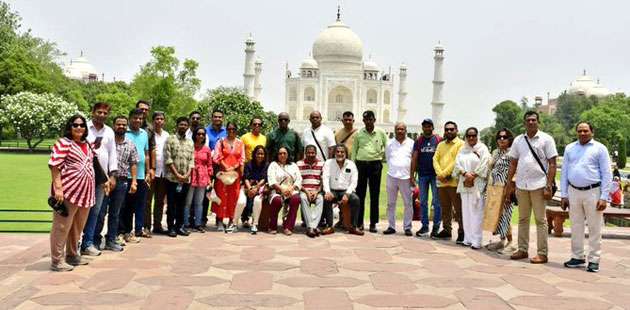චානක බණ්ඩාරගේ
සිංහල බෞද්ධ අත්තිවාරමක් (foundation) තිබෙන ශ්රී ලංකාවේ සිංහලයන්ට අමතරව ද්රවිඩ, මුස්ලිම්, බර්ගර්, ආදිවාසින් (මොවුන් සිංහල බෞද්ධයන්ගේම කොටසක් වැනි වෙති), මැලේ ආදීහු ජීවත් වෙති. ඔවුන් සියල්ල මෙහි ජීවත් විය යුතුය. එහි කිසිදු ප්රශ්ණනයක් නොමැත. අප සියළු දෙනාම ශ්රී ලාංකිකයෝය.
ද්රවිඩ ජාතිකයෙකුට කිලිනොච්චි අත් හැර ගම්පහ පදිංචි වීමට හැකියාවක් ඇත. මුස්ලිම් ජාතිකයෙකුට අක්කරෙයිපත්තු අත්හැර තංගල්ලේ පදිංචි විය හැක. නමුත්, ගම්පහ හෝ තංගල්ලේ වෙසෙන සිංහලයෙකුට කිලිනොච්චි හෝ අක්කරෙයිපත්තු ඉඩමක් මිලදී ගෙන නිවසක් සදා ගැනීමේ හැකියාව නැත/ඉතාම අපහසුය..
මෙය සාධාරණද?
නිදහසේ තමන් කැමති තැනක ජීවත්වීම (freedom of movement) අපගේ ආණ්ඩුක්රම ව්යවස්ථාවේ 14වෙනි වගන්තියෙන් සියළු රටවැසියන්ට ලබාදී ඇති අයිතියකි. ශ්රී ලංකාව විසින් අත්සන් කර ඇති International Covenant on Civil and Political Rights 1966 නමැති ජාත්යාන්තර ප්රඥප්තියේද මේ බව තදින්ම සඳහන් වේ.
නියම ‘සන්හිඳියාව’ වන්නේ රටවැසියෙකුට තමන් කැමති ඕනෑම පළාතක ජීවත්වීමේ අයිතිය හිමිවීමයි.
මැලේසියාවේ, ඕස්ත්රේලියාවේ (ඒකීය රටවල්) පුරවැසියන් එම රටවල ඕනෑම ප්රදේශයක වාසය කිරීමේ නිදහස භුක්ති විඳී. සීඩ්නි වල පදිංචි ඔනෑම ඕස්ත්රේලියානුවෙක් ‘හෙට සිට මම උතුරේ ඩාර්වින් වල පදිංචියට යනවා’ කියා තීරණය කල හොත් එම තීරණය ක්රියාත්මක කිරීමේ නිදහස ඔහුට/ඇයට ඇත. ඔහුට/ඇයට ඒ පිළිබඳව එම රටේ උතුරේ මහ ඇමතිගෙන් අවසර ලබා ගත යුතු නැත. ඩාර්වින්වල කිසිම බලධාරියෙක් ඔහුට/ඇයට එසේ පැමිණ ජීවත්වීම ගැන තහංචි දමන්නේ නැත.
ශ්රී ලංකාවද ඒකීය රාජ්යක් වේ. එහෙත්, කොළඹ පදිංචි සිංහලයෙක් ‘හෙට සිට මම යාපනයේ පදිංචියට යනවා’ කියා තීරණය කළහොත්? එවැන්නක් සිදුවීමේ වාතාවරණය මේ රටේ නැත හෝ ඉතා අපහසුය.
සිංහලයෙකුට අවශ්ය නම් කිලිනොච්චියේ, පේදුරු තුඩුවේ, මඩකලපුවේ, අක්කරෙයිපත්තුවේ ඉඩමක් මිලදී ගෙන එහි නිවසක් තනා සිය පවුල සමඟ නිදහසේ ජීවත්වීමේ උපරිම හැකියාව තිබිය යුතුයි.
මෙය අද මේ රටේ ප්රධානම මානව හිමිකම් (human rights) ප්රශ්ණයයි.
මෙයටත් වඩා වෙනත් අසාධාරනයක් වේද?
ඇතැම් TNA, පොන්නම්බලම්, සිද්ධාර්තන් වැනි මන්ත්රීවරුන් විසින් කරන ලද කථාවලින් මනා ලෙස පිළිබිඹුවන්නේ ඔවුන් උතුරට සිංහලයන් පැමිණ වාසය කිරීමට තරයේ විරුද්ධ බවයි.
දකුණේ ඕනෑම තැනක ද්රවිඩයන්ට ජිවත්විය හැකි නම්, සිංහලයන්ට උතුරේ/නැගෙනහිර ජීවත්වීමට නොහැකි මන්දැයි මේ ජාතිවාදීන්ගෙන් කෙලින්ම ඇසීමට තරම් පිට කොන්දක් ඇති එකදු දේශපාලනඥයෙක් වත් අද පාර්ලිමේන්තුවේ නොමැත.
එදා KMPරාජරත්න, APජයසුරිය, සිරිල් මැතිව්, ගාමිණි ජයසුරිය, දොස්තර නෙවිල් ප්රනාන්දු වැනි මන්ත්රීවරුන් කෙලින්ම මෙවැනි සිංහල අයිතීන් ගැන පාර්ලිමේන්තුවේ අභීතව හඬ නැගුහ.
1994 පසු තිබු සියළු රජයන් ඉතා සුක්ෂම ලෙස ‘සිංහල’’, බෞද්ධ’ ලෙස රට හැඳින්වීමට එදිරිව කටයුතු කලහ.
අද, මේ රටේ ඇත්තේ පළාත් 9ක් නොව 7ක් යයි සිතන තරමට සිංහලයෝ උතුර, නැගෙනහිර පිළිබඳව ආශාවන් අත්හැර ඇත්තා සේය. එම පළාත් දෙක පිළිබඳව ඔවුන් තුල ආධ්යාත්මික වූ බැඳීමක්/ඇල්මක් නොමැත. ඔවුන්ගේ සම්පුර්ණ අවධානය යොමු වී ඇත්තේ තමන් ජීවත්වෙන පළාත් 7 පිළිබඳවය. උතුර, නැගෙනහිර (මෙය මේ රටේ 1/3 ක භුමි කොටසකි, මුහුදු තීරයෙන් 2/3ක් පමණ වේ) ඉඩම්/දේපල තමන්ට කිසිදා ලබා ගැනීමට නොහැකි දේ ලෙස ඔවුන් සලකත්.
ප්රභාකරන් විසින් 1970 අග සහ 1980 මුල උතුරේ සිංහලයන් පලවා හරින විට එහි අඩු තරමින් සිංහල ස්ථිර පදිංචිකරුවෝ 50,000 තරමවත් සිටි බවට එහි එකල ජිවත් වූ වැසියෝ පවසත්. යාපනයේ පමණක් සිංහලයෝ 20,000 ස්ථිර පදිංචි කරුවන් ලෙස සිටි බවට කියති. යාපනයේ බේකරි කර්මාන්තය මුළුමනින්ම වාගේ තිබුනේ සිංහලයන් අතය. යාපනයේ එළවලු, මාළු වැනි වෙළදාම් වල සිංහලයෝ ඉදිරියෙන්ම සිටියහ. නමුත් අද දකුණු වවුනියාව සහ වවුනියාව දිස්ත්රික්කයේ නැගෙනහිරට වෙන්නට ඇති බෝගස්වැව, වෙහෙරතැන්න, නන්දිමිත්රගම, නාමල්ගම, වැලිඔය, හැලඹවැව, ජනකපුර වැනි ප්රදේශ අත්හල පසු, වවුනියාවෙන් ඔබ්බට, උතුරු පළාතේ ස්ථිරව ජිවත්වන මුළු සිංහල ගහණය 500ක් වත් නැති තරම්ය.
ප්රභාකරන් විසින් උතුරෙන් එලවා දමන ලද සිංහලයන්, මුස්ලිමානුවන් නැවතත් එම ප්රදේශවලට යාමට ඉතා අශාවෙන් සිටිත්. නමුත් ඔවුන්ව එම ප්රදේශවල නැවත පදිිංචි කිරිම පිළිබඳව 2009 යුධ ජයග්රණයෙන් පසු රජයන් සැලකිල්ලක් දැක්වුවේ නැත. ප්රභාකරන් විසින් පන්නා දමන ලද උතුරේ සිංහල පවුල් 50ක් පමණ, 2010දී යාපනයේ තම ඉඩම් ආපසු ලබා දෙන ලෙස ඉල්ලා යාපනය (පැරණි) දුම්රිය ස්ථානයේ දින ගණනාවක් රැඳී සිටියදී ඔවුන්ව ශ්රී ලංගම බස් වලට පටවා බලෙන්ම ආපසු මිහින්තලේට යවනු ලැබුවේ එවකට තිබු රජය මඟිනි (එවකට සිටී ආරක්ෂක ලේකම් 2019 දී රටේ ජනාධිපති විය). ඔවුන් නොගියේ නම් අත්අඩංගුවට ගන්නා බවට එක් සිංහල පොලිස් ASP වරයෙක් ඔවුන් ඉදිරියට පැමිණ තර්ජනය කර කියා සිටියේය. නමුත්, ඒ අතර සිටී විරෝධාර සිංහලයන් කිහිප දෙනක් තමන් කිසිම ලෙසකින් ආපසු දකුණට නොයන බවට ශපත කරමින් උතුරේම රැඳී සිටියහ. රජයේ කිසිම ආධාරයක් නොමැතිව නාවට්කුලි සිංහල ගම්මානය (යාපනයට කිලෝ මීටර් 7) බලෙන්ම බිහි කර ගත්තේ ඒ අය විසිනි. මේ අයව එම ගමින් එළවීමට TNA/දෙමළ පක්ෂ සහ දෙමළ පළාත් සභාව නොකළ දෙයක් නැත. මේ ගමට අදත් සෑම රජයකින්ම (මධ්යම ඇතුළු) ලැබෙන්නේ කුඩම්මාගේ සැලකිලිය. ඇතැම් මිනිසුන් තවමත් සිටින්නේ ටකරං මඩු වලය.
මේ ටකරං මඩු ගෙවල් සහ නාවට්කුලි ගමේ වෙනත් අඩුපාඩු යහපාලන රජයේ ප්රබල ඇමතිවරයෙක්ට (ක්රීඩාවකින් රටට ජය ලබා දුන්) මේ ලියුම්කරු පෞද්ගලිකවම පෙන්වීය (2016). ඔහු සමඟ මෙම ලියුම්කරු මුළු නාවට්කුලි ගම පුරාම ඇවිද්දේය – සියළු අඩුපාඩු පෙන්වීය. අප ඉල්ලන දෙය ලිඛිතව ඉදිරිපත් කරන මෙන් එතුමා දැන්වීය. ඒ දෙය ඔහුගේ එකී උතුරු සංචාරයෙන් දින 2ක් තුල ලබා දුනිමි. නමුත් ඔහුගෙන් කිසිදු පිළිතුරක් ලැබුනේ නැත, එම ගමට ඔහු කිසිත් නොකළේය.
එතුමා නාවට්කුලි පැමිණි කාලයේම එම රජයේ එවකට සිටී බුද්ධ ශාසන සහ අධිකරණ ඇමති නාවට්කුලි ගමට පුද්ගලික සංචාරයක් සේ පැමිණ, එහි පන්සලට රජයෙන් සැළකිය යුතු මුල්යමය අධාරයක් ලබා දී ගිය බව ද මෙහි පැවසිය යුතුය.
යාපනයට දුම්රියෙන් යනවිට නාවට්කුලි පන්සලේ යෝධ චෛත්ය රාජයානෝ දුම්රිය මගීන්ට දක්නට ලැබෙන ඉතා මනරම් දසුනකි.
වසර කිහිපයකට් උඩදී අනුරාධපුරයේ සිට සිංහලයෙක් තම කිට්ටු ඥාතියෙක් වෙසෙන නිසා උතුරට පැමිණ නාවට්කුලී සිංහල ගම්මානයේ පදිංචි වීමට උත්සහ දැරීය. එහි ඉඩමක් මිලදී ගෙන නිවසක් තනා ගැනීම හෝ තියෙන නිවසක් මිලදී ගැනීම නොව, සිය ඥාතියා සමඟ එම නිවසෙහිම ජීවත්වීමයි ඒ අයගේ අරමුණ වුයේ.
ග්රාම සේවක මට්ටමේ සිට එම අයට පැමිණියේ ‘කැපිළිය’. කිසිම රජයේ දෙපාර්තමේන්තුවක් ඒ අයගේ නව පදිංචිය ලියාපදිංචි කිරීමට සහාය නොදුණි. උවමනාවෙන්ම දෙමළෙන් දෙමළ නොතේරන ඒ අය සමඟ කථා කළහ. අවසානයේ සියළු බලාපොරොත්තු අත් හැර ඒ අය නැවත අනුරාධපුරය බලා ගියහ. එසේ යාම පිණිස බලධාරීන් කටයුතු කළහ.
නාවට්කුලිය සිංහල ගම් වැසියෙකු උදෑසන ආහාර කරත්තයක් ඉතා සාර්ථකව පවත්වා ගෙන යද්දී උතුරු ප්රාන්ත රජයේ නිලධාරීහු විවිධ උපක්රම යොදා ඔහුගේ එම ස්වයං රැකියා ව්යාපාරය නැවත්වුහ. ඔහු අද එම ගමද අත් හැර දමා ගාල්ලේ පදිංචිය. කළින් අනුරාධපුරයේ නිවසේ සිට අයිස් ක්රීම් සදා ඉහල පළපුරුද්දක් ඇති සිංහල අයෙකුට නාවට්කුලි සිය නිවසේ සිට අයිස් ක්රීම් කර්මාන්තයේ නියැලීමේ අවස්ථාව ප්රාන්ත රාජ්ය නිලධාරින් විසින් ලබා නොදුනි. සිංහල ගමේ නායකයෙකු වූ ඔහු අද සිය නාවට්කුලි නිවසද විකුණා දමා (ද්රවිඩ අයෙකුට) මැදවච්චියේ පදිංචිය.
2009 මැයි 19 වනදා යුධ ජයග්රහණයෙන් පසුව කල යුතුව තිබුනේ මෙම රටේ මෙතෙක් පැවතියේ ත්රස්තවාදී යුද්ධයක් බවත්, එය දැන් අවසන් බවත්, සියළු ජාතින් සාමයෙන්, සමගියෙන්, සහෝදරත්වයෙන් ලංකාවේ සෑම පලාතකම මින් ඉදිරියට වාසය කල හැකි බවට ප්රකාශ කර, ඒ අනුව ජාතික ප්රතිපත්ති සකස් කිරීමය. 1987දී 13වන ව්යවස්ථා සංශෝදනය ගෙන ආවේ එදා රටේ පැවතී ත්රස්තවාදී යුද්ධය නිසා බවත් යුද්ධය අවසන් වීම නිසා එය ජනමත විචාරණයක් මඟින් අවලංගු කල යුතු බවට සියළු ජනතාව දැනුවත් කල යුතුව තිබුණි. එදා එවැනි ඉල්ලීමක් කළා නම් සිංහල, ද්රවිඩ, මුස්ලිම් බොහෝ දෙනා එවන් ජනමත විචාරණයකට කැමැත්ත පල කිරීමට ඉඩ තිබුණි. 13වන සංශෝධනය අවලංගු කලානම් පළාත් සභා නමැති කිසිම වැඩකට නැති සුදු අලියා අහෝසි වී යනවා පමණක් නොව (පළාත් සභා 9ම අහෝසි වීමකි), උතුරු පළාත් සභාවට චන්දයක් පැවැත්වීමට අවශ්යතාවයක් නොවීමෙන් අප හොඳින්ම දැන සිටි කරුණක් වන සිංහලයාට එරෙහි වන ජාතිවාදී ආණ්ඩුවක් උතුරේ බලයට පැමිණීමෙන් වළක්වා ගත හැකිවීමට තිබුණි.
නැවතත් මෙවැනි ජනමත විචාරණයක් 2013 අග භාගයේදී උතුරු පළාත් සභා මැතිවරණය පැවැත්වීමට පෙර 2012/2013 දී පැවැත්වීමට රට තුල දැඩි ඉල්ලුමක් තිබුනත් එවක තිබු රජය ඒ ගැන කිසි සැලකිල්ලක් දැක්වුයේ නැත. එයට අවශ්ය වුයේ කෙසේ හෝ උතුරු පළාත් සභා මැතිවරණය පැවැත්වීමය. එහි ප්රථිපලයක් ලෙස සිංහලයන්ට උතුරට ගොස් පදිංචි වීමට තිබු කුඩා අවස්ථාව පවා දැන් අහිමි වී ගොස් තිබේ.
විග්නේස්වරන් උතුරේ TNA මහා ඇමති අපේක්ෂක බවට එම පෙරමුණ ප්රකාශ කලේ මැතිවරණයට බොහෝ කලකටත් උඩ දීය. ඔහු පැමිණ ජාතිවාදීව හැසිරෙන බව එකළ නොදත්තේ පොඩි ළමයෙක් පමණි.
TNA පෙරමුණ පාර්ලිමේන්තුවේ LTTE හඬ මෙන් කටයුතු කල බව කාටත් මතකය.
දැක්මක් නැති පාලකයන් නිසා සිංහලයා මේ රටේ බොහෝ අසරණ තත්ත්වයට පත්ව සිටිත්.
විග්නේස්වරන් මහ ඇමතිවරයා කාලයේ උතුරේ ප්රසිද්ධ ස්ථානයක නව බුදු පිළිමයක් ස්ථාපනය කිරීම පවා තහනම් කටයුත්තක් බවට පත් විය. පන්සලක චෛත්යයක් සදා ගැනීම වැනි කටයුත්තකට පවා උතුරේ සිංහල බෞද්ධයන්ට උසාවි අවසර ලබා ගැනීමට යාමට සිදුවීම ප්රශ්න බරපතල බව පෙන්වන්නකි.
කවදාවත් නොසිටී දෙමළ රජවරුන්ගේ පිළිම විග්නේස්වරන් මහත් වියදම් දරා යාපනයේ පිහිටවිය. කඩු, කිණිසි වැනි දේ රැගත් රෞද්ර වැනි පෙනුමැති දැවැන්ත තරුණ ද්රවිඩ පිළිම උතුරට පිවිසෙන සෑම නගර ද්වාරයකම වාගේ ඔහු පිහිට විය. මේවාට මුදල් සැපයුයේ මධ්යම රජයද?
සිංහල ජාතිකයෙකුට උතුරේ (සහ ඇතැම් නැගෙනහිර) ඉඩම් කොටසක් මිලදී ගැනීමට, බද්දට ගැනීමට, ගොවිපලක් ආරම්භ කිරීමට අද නොහැකිය/ඉතාම අපහසුය. මේවා මේ රටේ දැවැන්ත, දැවෙනම ප්රශ්ණය. නමුත් ඒවා ප්රශ්ණ නොවන ආකාරයෙන් පෙන්වා රජයන් කටයුතු කරයි. වර්ගවාදී ජාතික ප්රතිපත්තියක් අදහන TNA සහ බෙදුම්වාදී ද්රවිඩ දේශපාලඥයනට අවශ්ය ලෙස උතුරේ කටයුතු සිදුකිරීමට සියළු රජයන් මේ දක්වා ඉඩ ලබා දී තිබේ.
ප්රභාකරන් උතුරේ සිටි මුස්ලිමානුවන් ලක්ෂයකට වඩා පිරිසක් දකුණට එලවා දැමුවේය. යුද්ධයෙන් පසු පුත්තලමේ සිටි මුස්ලිමානු සරණාගතයන් ආපසු උතුරට (මන්නාරමට) රැගෙන යාම හරිය. ඔවුන් එසේ ගියා කියා දකුණේ සිංහලයෝ මැසිවිලි නගති – සමහර සිංහලයන්ට යථාර්ථය ගැන අවබෝධයක් නැත.
තේසවලාමේ නිසා සිංහලයන්ට උතුරේ ඉඩම් මිලදී ගත නොහැකිය යන බොරු තර්කයක් TNA පවසයි. උතුරේ තේසවලාමේ නිතීයට අයත් වනුයේ සීමිත ඉඩම් කාණ්ඩයක් පමණි. එකී ඉඩම් වුවද නිවැරදි නිතීමය ක්රමවේදයක් එකී ඉඩම් හිමියන් විසින් අනුගමනය කිරීමෙන් පසු තේසවලාමේ පැවරීමකට ලක් නොවුනහොත්, ඒවා ඉන් පසු සිංහලයනට වුවද මිලදී ගත හැක.
නිවැරදි නීති උපදෙස් ලබාගෙන, තේසවලමේ නීතියට කෙලින්ම හසු නොවන, උතුරේ ඉඩම් මිලදී ගෙන ඉදිරියට යාමට සිංහලයා කටයුතු කල යුතුවේ. රජය මෙයට සහාය ලබා දිය යුතුයි.
සිංහලයන්ට උතුරේ ගොවිපලවල්, ව්යාපාර පටන් ගැනීමට, එසේ නොමැති නම් උතුරේ වූ නිස්කලංක පරිසරයේ ජීවත්වීමට, එවැනි දේ කැමති අයට අවස්ථාව රජය සැලසිය යුතුවේ. නියම සංහිඳියාව යනු මෙයයි. නමුත් අද සිදුවන්නේ එයට ඉඳුරාම විරුද්ධ දෙයකි. එසේ යන අයව වැලැක්වීම සහ ඒ අයට අවශ්ය පහසුකම් නොලැබීමයි.
සිංහලයන්ට උතුරේ පදිංචි විමට ඉඩ නොදීමෙන් රජයන් සහ ද්රවිඩ දේශපාලනඥයන් ජාතික සහ අන්තර් ජාතික නීති කඩ කරත්.
උතුරේ සහ නැගෙනහිර අනාගත මිනිස් වාසස්ථාන ප්රධාන ජාතින් තුනටම ඉඩ දෙන පරිද්දෙන් සිදු කලයුතු වේ. මෙවැනි ප්රතිපත්තියක් අනුගමනය කිරීම රටේ සුභසිද්ධියට ඉවහල් වෙන්නකි.
මෙවැනි ප්රතිපත්තියක් සැලසුම් කර ක්රියාවට නැංවිය හැක්කේ මධ්යම රජයටයි. දැන් පවත්නා මධ්යම රජය ද්රවිඩ දේශපාලනඥයන් සමඟ සමීපව වැඩ කරන බැවින් මෙම රජයට ඉතා හොඳින් මේ ක්රියාදාමය ආරම්භ කල හැකියි.
එදා බොරැල්ලේ වනාතමුල්ල, මට්ටක්කුලියේ සමිට්පුර 95% පමණ සිංහල බෞද්ධ වූ විශාල නාගරික ගම්මානයන්ය. පන්සල් වලින් නැඟුන සාධු නාදය, පිරිත් සජ්ජායනා වලින් ඒ ප්රදේශ සුපිරිසිඳුවත් විය. අද ඒවායෙහි සිංහල බෞද්ධයන් 50%ක් වත් නැති තරමි. කෝවිල්, විවිධ පල්ලි හතු පිපෙන්නාක් මෙන් බිහිවී ඇත; බිහිවෙමින් පවතී. ජාතික නිදහස ගැන කථා කරන නිවාස ඇමතිවරයෙක් යටතේ සහශ්ර පුර, මුවදොර උයන වැනි යෝධ නාගරික ව්යාපෘති වල (7,000- 8,000 එහා ජනයා ජීවත්වෙන) සෑම විටම වාගේ සිංහල, දෙමළ, මුස්ලිම් 1/3 අනුපාතයට බෙදෙන පරිදි ජනයා පදිංචි කරවනු ලැබිය. මේවා ඔහුගේ වීර, වංශවත් වික්රමයන්ය. ප්රේමදාස ජනාධිතුමා මිනිසුන් පදිංචි කලේ/රජයේ පත්වීම් දුන්නේ රටේ ජාතික ජනගහන අනුපාතයනටය (74%, 18%, 8%).
කොටහේන, මෝදර, මට්ටක්කුලිය, මාලිගාවත්ත, වැල්ලවත්ත, කොම්පඥය වීදිය වැනි ප්රදේශවල අද සිංහලයා නැත්තටම නැති තරම්ය. 1960 ගණන් වල සිංහලයා 60% වඩා සිටියහ. මේ සමහර ප්රදේශවල සිංහලයන් 25%ක් වත් අද ඇද්ද?
කොළඹ නගර සභා බල ප්රදේශය තුල සිංහලයා අද සුළු ජාතියක් බවට පත්වී හමාර නොවේද?
නමුත්, මේ ගැන අප කිසිදු ජාතියකටවත් දොස් නොකියමු. සියල්ල දරා ගෙන, සියළු දෙනාටම ආදරයෙන් සළකමු.
උතුර තුල යම් දිනක ‘සිංහල වැල්ලවත්තක්’, ‘සිංහල කොටහේනක්’ බිහි වුවහොත් රට සංහිඳියාව අතින් උපරිම ප්රථිපල ලබා ඇතැයි අපට එදිනට ඉමහත් අභිමානයෙන් යුතුව කිව හැකි වේ. කිලිනොච්චියේ සහ මුලතිවු වල මෙවැනි සිංහල ජනාවාස 2ක් ඇති කිරීමට මධ්යම රජය සහ රටට අවංකව ආදරය කරන උතුරු දේශපාලනඥයන්ට ක්රියා නොකර සිටීමට කිසිම හේතුවක් නැත.
මෙම ලිපියෙන් මුලිකවම පෙන්වා දීමට අදහස් කලේ උතුරේ නව සිංහලයන් පදිංචි විය යුතු අතර ඒ සඳහා රජයන් (සහ වෙනත් රාජ්ය නොවන) ආයතන උනන්දුවෙන් කටයුතු කල යුතු බවයි. එවැන්නක් කළහොත් එයින් රටේ සියළු ජාතීන්ට වන සෙත කියා නිම කල නොහැකිය. අනාගතයයේදී ජාතිවාදී යුද්ධයක් නැවත මෙරට ඇති නොවීමට ඇති හොඳම පිළියමකි එය. වසර 30ක් පැවති යුද්ධය ඇති වීමට ප්රධාන හේතුවක් වුයේ උතුරේ සිංහලයන් නොසිටීමය. ප්රභාකරන් සහ ඔහුගේ අනුගාමිකයන් හට සිංහලයන් ගැන හොඳ අවබෝධයක් තිබුනේ නැත. ඔවුහු බොහෝ දෙනෙක් සිංහල කථා කිරීමට පවා නොපුළුවන් විය. රජයන් මඟින් සිංහලුන් උතුරෙන් ඉවත් කිරීමට වෑයම් කරන්නේ නම් උතුරේ දෙමළ ජනයාට සිංහලුන් ගැන හොඳ අවබෝධයක් ලබා ගැනීමට නොහැකි වනු ඇත. එය සංහිඳියා ක්රියාමාර්ගය සාර්ථක නොවීමට මුලිකම හේතුවක් වනු ඇත.
මන්නාරම මුරුන්කන්හි නරි කාඩු (විකුම් පුර) සහ මඩුහි මඩු පාර සිංහල ගම්මාන
මෙවා සිංහල වැසියන් ජීවත්වෙන ගම්මානයි. මේවායේ බොහෝ සිංහල අය පාරම්පරිකව එම ප්රදේශයේ ජීවත් වූ අයයි. ඒ අය දෙමල කථා කරති. දෙමළ නොදන්නා සිංහලයෝද මේ ගම් වල ජීවත් වෙති.
ප්රභාකරන් විසින් උතුරෙන් සිංහලයන් එළවීමේ ත්රස්තවාදී වැඩපිළිවෙල යටතේ මෙම ගමේ බොහෝ දෙනෙක් උතුර අත් හැර උතුරු මැද පලාතට ගියහ. 2009 යුද්ධය අවසන් වීමෙන් පසු මේ සිංහලයන්ගෙන් සමහරෙක් ආපසු නරි කාඩු/මඩු පාර ගම්මාන වෙත ආහ.
මෙම ගම් 2ට වැදුණු තදබල පහරක් වුයේ ගමේ ළමුන් පාසැල් ගිය මඩු පාර සිංහල මහා විද්යාලය විග්නේස්වරන්ගේ උතුරු පළාත් සභාව විසින් 2018දී වසා දැමීමයි. එය වසර ගණනාවක් පැරණි, සියළු පහසුකම් වලින් හෙබි උසස් විදුහලක් විය. එය අක්කර ගණනාවක ඉතා මනරම් භූමියකි.
ප්රභාකරන් යාපනයේ සිංහල මහා විද්යාලය විනාශ කර දැමිය. මෛත්රීපාල සේනානායක, KB රත්නායක – හිටපු ඇමතිවරු එහි ආදී ශිෂ්යයන්ය. ඒ හිස් භුමිය අදත් රජය සතුය (යාපනය මහ රෝහලට යාබද). අද පවත්නා ජාජබ රජය එහි සිංහල මහා විද්යාලය යළි ස්ථාපිත කරත්ද?
විග්නේස්වරන්ගේ TNA පළාත් සභා රජය විසින් කිසි හිතක් පපුවක් නොමැතිව අගනා මඩු පාර සිංහල මහා විද්යාලය වසා දමන ලදී.
මේ අසාධාරණ වසා දැමීම පිළිබඳව අප එවකට වූ යහපාලන රජය දැනුවත් කළෙමු. නමුත් කිසිත් සිදුවුයේ නැත.
තම දරුවන්ට සිංහලෙන් අධ්යාපනය ලබා දීමේ හැකියාව නොමැති නිසා නරි කාඩු, මඩු පාර සිංහල ගම්වල සිංහලයන් සමහරෙක් ආපසු උතුරු මැද පළාත බලා ගියහ. මිනිසුනට වගා කිරීමට ඉඩම් නොමැති කම නිසාද මේ ගම් අත් හැර දකුණට ආපසු ගිය සිංහලයෝ වුහ.
2023දී රනිල් වික්රමසිංහ ජනාධිපතිතුමා ප්රතිපාදන ලබාදී මෙම පාසැල නැවත විවෘත කර දුන්නේය. මන්නාරම සිලාවතුර පාසැලද නැවත එතුමා විවෘත කිරීමට කටයුතු කළේය. ඒ කර්තව්යනට මෙම ලියුම්කරුද සම්බන්ධය. අද අප ඉතා අමාරුවෙන් මන්නාරම සිංහල මහා විද්යාලය පවත්වා ගෙන යමු.
පහසුකම් දෙන්නේ නම් විලච්චිය, මහ විලච්චි වැනි ප්රදේශවල සිංහලයෝ විශාල ලෙස තම දරුවන් කැටුව නරිකාඩු, මඩු පාරේ පදිංචියට පැමිණීමට සුදානම්ය. ඒ තම සිංහල දරුවනට සිංහලයෙන් අධ්යාපනය ලබා දීමටය. නමුත් මේ අයගේ ඒම වළක්වන්නේ ද්රවිඩ රජයේ නිලධාරින්ය. දෙමළ කථා කරන පුත්තලම් ප්රදේශයේ සිට මඩු පාරේ පදිංචියට පැමිණි සිංහලයනට ‘අස්වැසුම’ රජයේ ප්රතිලාභය ලබා නොදෙත්. ඔවුන් පැමිණ දැන් වසරකටත් වැඩිය. මේ අය ආපසු යා හැක. කිසිම ආදායමක් නොමැති නිසා සිය දරුවන් රැගෙන ආපසු දකුණට ගිය සිංහල පවුල් කිහිපයකි – නිට්ටඹුව, කුරුනෑගල වැනි පළාත් වලින් පැමිණි.
නමුත් මේ අය ආපසු මන්නාරමට පැමිණීමට සුදානමින් සිටිත්.
ඉඩම්, නිවාස, රැකියා, අස්වැසුම ආධාර – මේ කිසිත් නොමැතිව මේ අය දරු පවුල් සමඟ උතුරට පැමිණ කෙසේ නම් නව ජීවීතයක් ආරම්භ කරත්ද?
තත්ත්වය මෙසේ තිබියදී නිවාස සංගණනයක්ය කියා වසර කිහිපයකට පෙර නරි කාඩු අයත් වෙන නානාත්තාන් දිස්ත්රික් සහකාර ලේකම් ආයතනයේ නිලධාරින් එම ගමට ගොස් එහි වැසියන්ගෙන් වසා තබා ඇති නිවාස පිළිබඳව නොයෙක් ප්රශ්ණ අසා ඇත. ‘මේ ගෙවල් අපරාදේ, අනිත් අයට (දෙමළ) ගෙවල් නෑ, මේක මහ අපරාධයක්” වැනි දේ ඔවුන් කියා ඇත.
වසා තිබෙන නිවෙස් හැර, ඒවායේ දෙමල ජනයා පදිංචි කරාවිද යන බිය සිංහල ගම් වැසියන් තුල ඇත.
මෙම කාරණය ගැන මෙම ලියුම්කරු වාර්ථා කරන්නේ ඔහුට ගම්වැසියන් විසින් පවසන ලද කථාවය.
මෙම ලියුම්කරු මෙම ගම්මානවල බොහෝ කාලයක සිට ප්රජා සංවර්ධන වැඩ කටයුතු සිදු කර ඇති නිසා නිර්භවම පවසන්නේ – අද උතුරේ පදිංචි සිංහලයාට තම ප්රශ්ණ කීමට කිසිම සිංහල නිලධාරියෙක් නොමැති බවත් සිංහලයන් වාසය කරන මේ ප්රදේශවල රජයේ ආයතනවල සිංහලෙන් කිසිම වැඩක් නොකරන බවත්ය.
1987 සිට 2018 දක්වා එක් දිගට (වසර 31ක්), සැමදාම උතුරේ ආණ්ඩුකාරයා වුයේ සිංහල අයෙකි. මේ තත්ත්වය වෙනස් කලේ ජනාධිපති මෛත්රීපාල සිරිසේනයි – 2018දීය. ඉන්පසු පැමිණි සියළු ආණ්ඩුකාරයන් වුයේ දෙමළ අයයි. උතුරේ ආණ්ඩුකාරයා දෙමළ විය යුතු බවට නව සම්ප්රදායක් දැන් බිහිවී තිබෙන බවක් පෙනේ. උතුරේ සිංහලයාගේ ප්රශ්ණ නිසියාකාර ලෙස කියන්නේ කාහටද?
සිංහලයා මේ රටේ විඳින මෙම ජාතිවාදය ගැන කිසිවෙක් කථා නොකරයි/නොපිළිගනී.
මෙම ලියුම්කරු ගෝලීය ශ්රී ලාංකික එකමුතුවේ (Sri Lanka Support Group) ආරම්භක/වර්තමාන සභාපතිවරයා වේ. සිංහල සංවර්ධන සංවිධානයේ (ශ්රී ලංකාවේ 1980 මැද භාගයේ ලියාපදිංචි කරන ලද) වත්මන් සභාපතිවරයා වේ. sinhalasanvardhanasanvidhanaya@gmail.com

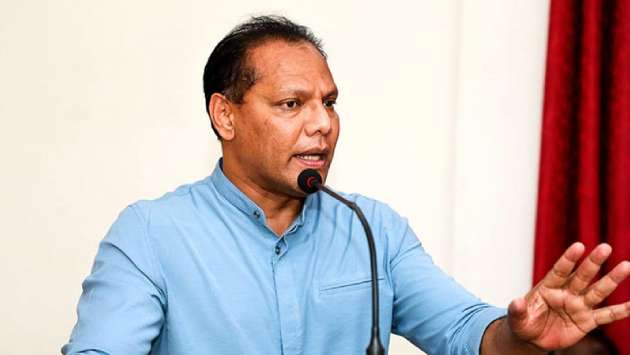

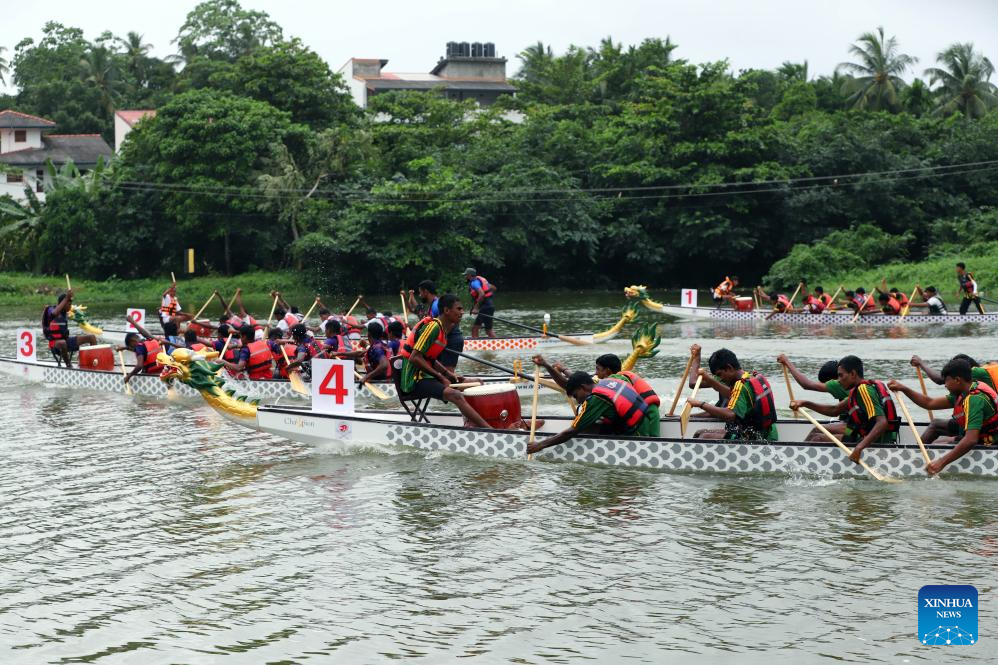

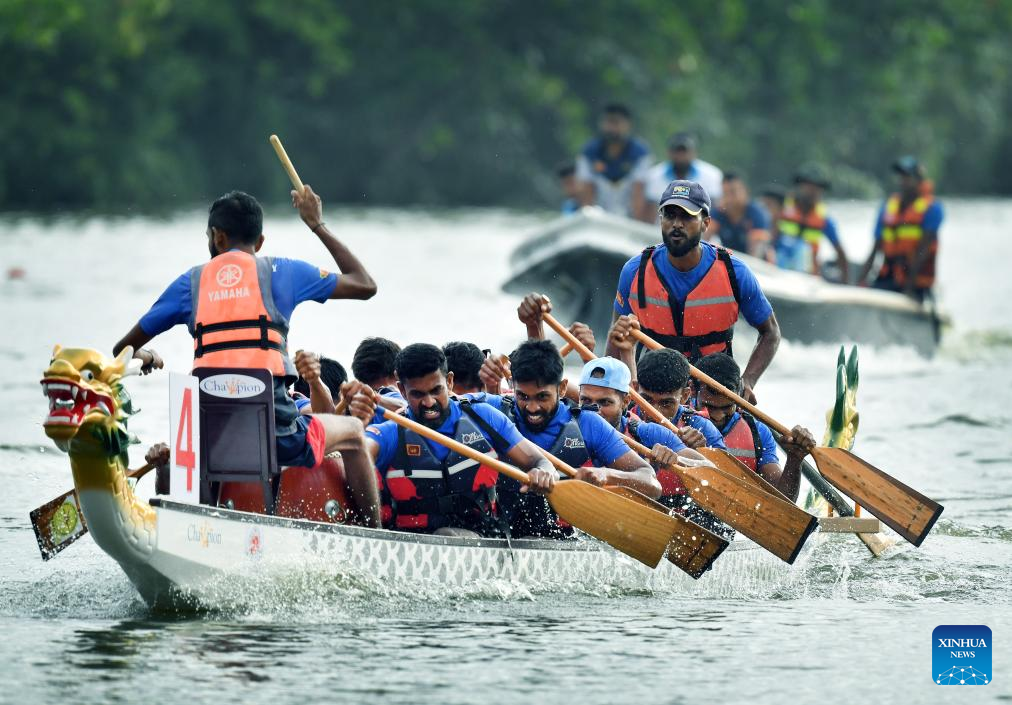

 The 1955 Bandung Conference was a key moment when newly free countries met to decide their path in a divided world. The then Ceylon’s Prime Minister Sir John Kotelawala deserves credit for defending small nation rights against big power attitudes. The Bandung idea actually came from Sir John’s 1954 Colombo Conference. Yet, when the bigger meeting happened in Indonesia, he was expected to follow India’s lead instead of speaking for his own country.
The 1955 Bandung Conference was a key moment when newly free countries met to decide their path in a divided world. The then Ceylon’s Prime Minister Sir John Kotelawala deserves credit for defending small nation rights against big power attitudes. The Bandung idea actually came from Sir John’s 1954 Colombo Conference. Yet, when the bigger meeting happened in Indonesia, he was expected to follow India’s lead instead of speaking for his own country.